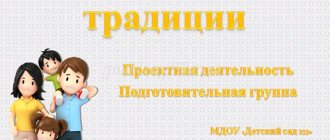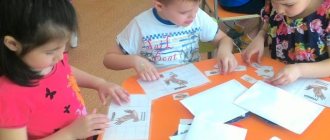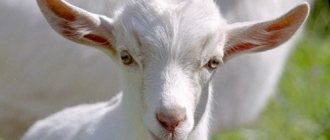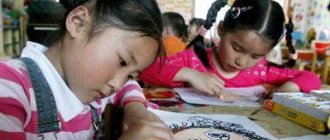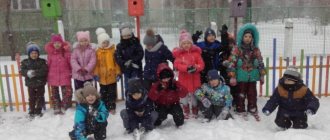Project My Family
Pedagogical project
Second junior group
"DOLPHINS"
“... The family is the primary bosom of human culture... Here the dormant forces of the personal soul awaken and begin to unfold; here the child learns to love (who and how?), believe (in what?) and sacrifice (what and with what?); here the first foundations of his character are formed; here the main sources of his future happiness and unhappiness are revealed in the child’s soul; here the child becomes a little person, from whom a great personality or, perhaps, a low rogue subsequently develops.”
Ivan Alexandrovich Ilyin
Relevance of the project:
When raising children of the first junior group, already at this age we think about how to develop and shape the child’s personality, to raise a real citizen with moral qualities, patriotic feelings and civic position. And our first helpers in this direction, of course, are the family. For a small child, mom and dad are a world in which the foundations of morality are laid, a feeling of love for everything that surrounds the little citizen, and a tolerant attitude towards people.
The family has the main social function - raising children. It was and remains a vital environment for the preservation and transmission of social and cultural values, a determining factor in the formation of a child’s personality. The feeling of love for one’s home, for the Motherland, arises in the family.
Unfortunately, nowadays in our country, for many reasons, family ties are weakening, and traditional family upbringing is becoming a thing of the past. This process can and should be stopped by us preschool teachers - the people who communicate most closely with children and their parents.
At present, when the upbringing and development of a preschool child is greatly negatively influenced by the employment and detachment of parents, access to mass pseudoculture, weakening family ties and connections between generations, the task of moral and civic education in the educational process of a preschool educational institution has become more urgent. .
The formation of new approaches to the development of a parenting culture is based on increasing the status of the family in the eyes of parents, in the eyes of their children and teachers. In addition, teachers convey the idea that the culture of parenthood is laid down in childhood, and throughout life, before entering marriageable age, children develop a certain stereotype of family relationships, which, when grown up, children will begin to implement in their family life.
Target:
form children’s primary ideas about family, family
traditions, responsibilities; instill in children love and respect for
all family members; develop sociability and communication skills.
Tasks:
- Teach children to understand the roles of adults and children in the family, to give an idea of the moral behavior between them.
- Strengthen the ability to name family members, instill in the child joy and pride in having a family, and a feeling of gratitude for caring.
- To promote the active involvement of parents in joint activities with the child in family and kindergarten settings.
- Establishing partnerships with the family of each child.
- Summarize child-parent relationships through the experience of joint creative activity.
Estimated results of the project implementation:
- Revival of family education traditions;
- Application by parents of pedagogical knowledge about raising children in the family;
- Development of partnerships in the family.
Project type:
informational - educational, creative
Project duration:
long-term (from September 2016 - May 2022)
Project participants:
Children of the group "DOLPHINS", parents and teachers
Educational areas:
“Physical development”, “Social and communicative development”, “Cognitive development”, “Artistic and aesthetic development”, “Speech development”
Expected result:
Children
- An idea of the family, knowledge of all families has been formed.
- Positive relationships have been formed between children and parents.
Parents
- Partnership relationships have been established with the group’s teachers.
- Developed creative potential through joint creative activities.
- Parents have shown interest in holding joint
creative activities with children and group teachers.
- Parents’ pedagogical competence and confidence in
own pedagogical capabilities.
Teachers
- All conditions have been created for cooperation between teachers and parents and children,
visual and informational material has been selected, awareness in
various issues of raising children.
- The optimal ways of interaction in educational influence have been determined
per child.
Project implementation stages
First stage : Preparatory (preliminary work)
Reading the story by D. Grabe “Mom” Conversation based on what was read.
- Tell me, who in the family takes care of the children the most?
- What mom? Why do we live with our family?
- Why are there both mom and dad?
- Why are there a brother and a sister?
- Who are Grandfather and Grandmother?
- Why does a child have 2 grandparents?
After the conversation, we realized that it was necessary to arouse in children not only admiration for their mother, but also the need to provide her with all possible help - fold their own clothes, put away toys, etc. We noticed that children know little about their family.
This determined the theme of our project “My Family”
Second stage : Project development.
- Inform project participants of the importance of this problem.
- Select methodological and fiction literature.
- Select materials, toys, attributes for gaming and theatrical activities.
- Select material for children’s visual and productive activities.
- Encourage the active participation of parents.
Third stage : Main
| Educational region | Types of children's activities |
| Speech development |
“Goat with kids”, “Three bears”, “Rock hen” "Turnip".
|
| Cognitive development |
|
| Artistic and aesthetic development |
"Portrait of my mother", "The house where I live."
|
| Physical development |
|
| Social-communicative development |
"Let's cook dinner for mom"
|
Stage four : Working with parents
- Parent survey “Moral values”
- Test for parents “Do you know how to raise your children?”
- Memo to parents: “Creating a favorable family life,” “Don’t forget to do for the child and with the child.”
- Sociological questionnaire of the family.
- Consultations: “How to behave correctly with a child”, “The role of the father in raising a child”, “How it is desirable (not desirable) to behave with the first child”, “Children’s games are a serious matter”
- Involve parents in the project.
- Parent meeting “My family - what could be more expensive”
- Participate in collecting information about your family.
- Production of family wall newspapers, photo exhibitions.
- Preparing the presentation “Family Tree”.
- Participation in thematic competitions, holidays, parent meetings.
Fifth stage : Final
- Presentation of creative projects “Friendly family - happy children”, “What a good family we are”, “My family nest”.
- Album exhibition “My Family”
- Exhibition of drawings “My Family”.
Conclusion
This project is a vivid example of the fact that a friendly family is a team. It may be small, diverse in age, but a team. And in ordinary everyday life, holiday worries, the educational wealth of the collective
work, where the child’s respect, love and attachment to family traditions, awareness of himself as a member of this family are laid.
I would like to end my project with words
Family is a source of inspiration
Where adults and children are nearby,
In the family there is salvation from all adversity,
Here everyone is responsible for each other.
Bibliography:
- T.A. Shorygin “Conversations about the rights of the child”, Moscow, 2009.
- V.I. Petrova “Moral education in kindergarten” Program and methodological recommendations; M. Mozaika - Synthesis, 2005
- A.K. Bondarenko “Raising children through play” - Moscow “Enlightenment” 2010.
- A.V. Kozlova “Working with the family” - M-TU Sfera, 2007.
- L. Kutsakova “Moral and labor education of a preschool child” - M. Vlados, 2005.
- Pyzhyanova Y. “Children’s rights.” Magazine “Child in kindergarten, 2003, No. 3,4.
- N.G. Zelenova, L.E. Osipova “I am a child, and I... and I have the right,” Moscow, 2007.
- Ge, Naberezhnye Chelny, 2009.
- Russian Federation and the Convention on the Rights of the Child. Unicef 2008
- S.V. Chirkova Parent meetings in kindergarten.” Moscow 2011
Extracurricular activities for 3rd grade. Topic: My family. Abstract with presentation
Methodological development of extracurricular activities for 3rd grade.
Topic: My family.
Author: Berdnik Galina Stanislavovna, primary school teacher of the KhMAO-Yugra Municipal Educational Institution “Laryak boarding school for students with disabilities.” Description: I present to your attention a summary of an integrated lesson for primary school students, conducted as part of a subject week on the topic “My Family”. The publication may be useful to primary school teachers, additional education teachers and preschool teachers. Goal: To form schoolchildren’s ideas about family, family happiness, family relationships; the formation of moral ideas, students about intra-family relationships, attitudes towards future family life, the responsibility of family members. Objectives: Educational:
- promote in children a sense of love and respect for loved ones;
- contribute to the formation of the right attitude towards the family, its members, and their relationships. Developmental:
- develop speech, attention, ability to analyze, develop self-esteem skills;
- develop logical thinking, ability to classify and reason; - develop intelligence, attention, memory. Educational:
- cultivate love, respect for the family, a sense of pride in the family.
Equipment: tablets with the inscriptions “Family”, “Friendly Family”, signs of a friendly family, cards with the names of family members; rebus. Equipment for students: cardboard, templates, pencil, glue, scissors, napkin, trash box. Progress of the lesson. 1.Org. moment. Sounds like “Song about family”.
-You are so beautiful today.
I am so pleased to look at you and catch your interested glances. Look at me and show me with a smile that you are in a good mood. -Today we will talk about a very interesting and important topic. And I hope that you will work actively, and that you will all remain in a great mood until the end of the lesson. 2. Introductory conversation. It is very difficult to live alone in the world.
Guys, I always want to live with Mom and Dad. -Having solved the puzzle, you will find out what we will talk about today. 7I
- What is family?
How do you understand this word? What comes to your mind when you say it? (Children's answers).
— In Vladimir Ivanovich Dahl’s dictionary, a family is a group of relatives living together.
Who can be called relatives? + This is mom, dad, brothers, sisters, grandmothers, grandfathers. (As family members are named, rays with words appear on the board)
-Which ray did you forget?
(Himself) - What did we do? — Family is the sun. 3. Determining the topic of the lesson. Goal setting. -The topic of our lesson: “My family.” We will talk about family, family members, relationships between parents and children. Let's find out what needs to be done for the family to live cheerfully and happily. Family is a strange word, Although not foreign. - How the word came about is not clear to us at all. Well, “I” – we understand. Why are there seven of them? There is no need to think and guess, But you just need to count: Two grandfathers, two grandmothers, Plus dad, mom, me. Folded? That makes seven people. Family"! 4. Work on the topic of the lesson. Secrets of the word "family". -The word family has many meanings. For example, this word can be divided into seven i, i.e. seven are just like me. And, indeed, in the family everyone is somewhat similar to each other: face, look, voice, behavior, habits, tastes. The number “7” itself is special - it is indivisible. Therefore, it tells us that the family is a single whole. -There is another secret to this word. It comes from the word seed (seed).
- Why do you think? - Indeed, a family is a seed from which a big tree will eventually grow. Whether it will be strong or sway in the wind depends on us, on our behavior and attitude towards each other. (video animation of tree growth)
- Family is the most important thing in life for each of us. Family is close and dear people living together. If we feel bad, it’s difficult, if a misfortune happens, who will listen to us, help, reassure us, give advice and protect us? Of course, relatives. The closest and dearest people, our support for life. No wonder people say: The whole family is in place, and so is the soul in place. — To confirm your words, let’s listen to a song about family.
(video clip about family) Competition of good words about family. (children are given cards with words)
- From the proposed words, select those that are necessary for a friendly, strong, happy family.
Order, calm, quarrel, health, illness, love, hatred, purity, resentment, kindness, care, happiness, rudeness, friendship, harmony, peace.
— These words are found in proverbs and sayings, in folk wisdom.
We already know one. For example, the whole family is together, and the soul is in place. Peace in the family is maintained by love. A friendly family knows no sadness. Good children grow up in a good family.
- Explain the meaning of proverbs.
Reading poems by heart. -What is the very first word? What's the most important word? What is the brightest word? Mother! “All kinds of mothers are needed, all kinds of mothers are important.” Go around the whole world, Just know in advance: You won’t find warmer hands, And more tender than your mother’s.
You will not find eyes in the world more affectionate and stricter. Mom is dearer to each of us than all people. A hundred paths, a hundred roads, go around the world. Mom is the best friend! There is no better mother! - Tell me, how affectionately does your mother call you?
How do you address her? (Son, good, beloved, my sunshine, kitten)
- How can mom be without dad?
Poem "About Dad" I want to be like my dad.
I want to become like my dad in everything. Like him - Wear a suit and a hat, Walk, watch and even sleep. Be strong, smart, don’t be lazy and do everything like he does - perfect! And don’t forget to get married! And... take our mother as a wife. — Dads are smart, kind, strong.
They know about everything in the world. They can teach you a lot. To suggest something. It’s not easy to be like a dad; a dad is a real man. Every real man must plant a tree, build a house, and raise a son during his life. “And a real man must be a jack of all trades.” Otherwise, your loved ones will be unhappy. Who should fix the faucet, take out the trash, change a light bulb, nail a nail? Competition “What’s in Dad’s Suitcase?” — For this purpose, working tools should be stored in every home. Try to guess by touch and give the correct name to the instrument. (hammer, pliers, screwdriver, wrench, nail, plane) “Fun Questions” competition. - This is when everyone is together - mom, dad, grandma, grandpa. (family) - The most gentle, kind, beloved person for all people on Earth. (Mother). - What are your mothers names? When is their birthday? - A place where we all go together. (house) - Small, squeaking, causing a lot of trouble, but they still love him. (child) - All children play with them. (toys) - This is not a person, but all family members love him. (pet) - Mom irons the linen... (iron) - Dad grinds the meat through... (meat grinder) - She knits socks for everyone and bakes the most wonderful pies and buns. (grandmother)
-It’s good when a family has grandparents from whom you can follow an example in love and loyalty to each other.
About grandparents. I have been friends with my grandmother for a long time. She is at the same time with me in all my undertakings. I don’t know boredom with her, And I love everything about her, But I love my grandmother’s hands most of all. Students' stories about their household responsibilities. - No matter how much your parents do for you, you shouldn’t upset them. What should you do or how should you behave so as not to upset them? ( children's answers) Game situation. - Now we will find out how responsibilities are distributed between members of your family. I will tell you the actions. If mom performs this action, raise the letter M, if dad - the letter P, you - the letter Y. Baking, playing, knitting, washing, sewing, cleaning, cooking, reading, drawing, crafts, sweeping, vacuuming, washing the floor, repairing, drives the car, wipes the dust, goes to the store, works on the computer, takes out the trash, watches TV, checks the child’s homework, helps with homework. Physical education minute. (If the answer is “yes,” clap your hands; if the answer is “no,” stomp your feet, put your hands on your belt.)
Will we always help out mom?
(Yes!) And we will never deceive? (Yes!) Throw a stone after the cat? (No!) Should I take a ticket on the bus? (No!) Ay, ah, ah, how is it not? Do I always have to buy a ticket? (Yes!) Don't be timid when there's trouble? (Yes!) Do not spare labor for business? (Yes!) Don't wash your hands during lunch? (No!) How can you not wash it? Be sure to wash! (Yes!) Sun, air and water? (Yes!) We say hello to lazy people? (No!) And what about those who do good? (Yes! Yes! Yes!) - Your answers indicate that you are polite and can be considered real helpers. — Do you think our group can be called a family? (children's opinions). - You probably think that our group can be called a family. Of course, we are not relatives, but we live and study together, learn something new together, rejoice in victories and are upset by failures. Creative workshop. (Showing a joint photo in a frame with daisies)
Making photo frames.
Decorating the frame with letters and flowers.
Reflection. Rules for family school life.
We will: • Call each other by name. • Protect our friends when they are wronged. • Help friends in need. • Help friends with their studies. We will not: • Be rude to each other. • Use your fists. • Saying hurtful things to friends. “And year after year our family will become more and more friendly, stronger.” Bottom line. - Any person should have a home, and not just a roof over his head, but a place where he is loved, understood and expected, a place where a person feels warm and comfortable. It depends on what kind of relationship we build with each other so that all family members are happy. -At the end of our lesson, we will make a small magical prediction. (video with chamomile).
— The daisy flower is considered a symbol of the family. Good wishes are written on each petal. We won’t pick the petals; we’ll choose a chamomile with a wish written on it. May it bring you happiness.
Presentation on the topic: Extracurricular activity for 3rd grade
We recommend watching:
Possibilities of gaming technology for the formation of communicative and regulatory UUD in VN classes Extracurricular lesson in 3rd grade on the topic: Healthy lifestyle, Synopsis of an extracurricular creative lesson for schoolchildren of 3-4 grades with a presentation Extracurricular lesson about cats, 3rd grade. Abstract with presentation
Similar articles:
Summary of an extracurricular lesson on Safety Fundamentals for students in grades 3-4
Role-playing game for younger schoolchildren. Plant properties
